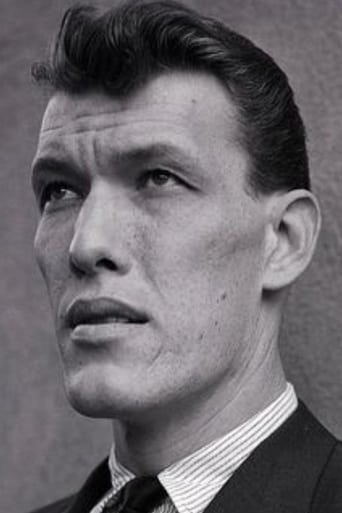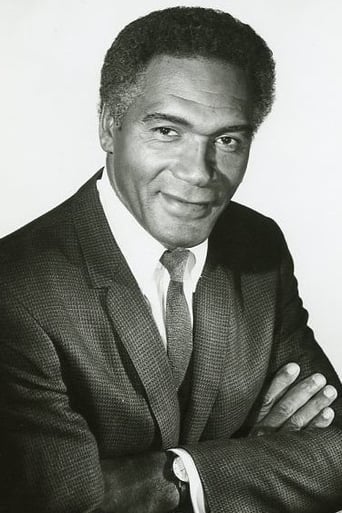Matialth
Good concept, poorly executed.
RipDelight
This is a tender, generous movie that likes its characters and presents them as real people, full of flaws and strengths.
Arianna Moses
Let me be very fair here, this is not the best movie in my opinion. But, this movie is fun, it has purpose and is very enjoyable to watch.
midge56
This was the first of 3 pilots which started with Roddenberry's theme about someone from the past waking up in a post apocalyptical future. Roddenberry also wrote a second movie, Planet Earth with the same concept and characters. But despite the fans love for Roddenberry, he really missed the mark on this one. This theme was just the opposite of what the baby boomers wanted to see and the opposite of the Star Trek Utopian society. Even the third film without Roddenberry, had the same problems.The reason Star Trek was so popular was because it was a Utopian futuristic society which had risen above wars, violence, disease, poverty, racism and discrimination. It depicted mankind learning from its mistakes and building a peaceful society of exploration, cooperation, invention and forward progress. That Utopian approach appealed to the war weary viewers of this era.This Trilogy about Pax did exactly the opposite. It showed the degradation of society. Each film, while claiming Pax peace... was filled with violence, segregation, themes of hatred and slavery. Themes of technological regression. These were the very things that this generation of viewers hated. No one wanted to see shows depicting societal disintegration and backward momentum into archaic, violent existences. These were offensive themes which no one wanted to view even once, let alone on a weekly episode.Even worse, the interpretations of ideal societies as depicted on these shows such as an ancient Rome type of society... were the perceptions and desires of people born in the 20's instead of the views of the generations who were the target audience... the baby boomers.Our generation hated wars and poverty, discrimination, big brother, environmental damage and establishmentarianism most of all. They wanted to see peace, progress, no poverty, no disease, clean air, no fossil fuels, technological advancement... just like Star Trek.This trilogy was just the opposite of the themes preferred by both the peace generation or the yuppie generation that followed. Both generations were antiwar. Conversely, this PAX series was one violent conflict after another despite the fact that they called their society by a name for peace. It was just the opposite. Even worse, the core character from the past was a violent man who managed to judge and then destroy one society after another. In this story, it is the Mr Macho main character against an entire Amazonistic society. This kind of macho mentality did not go over well with the baby boomers either.The first 2 movies written by Roddenberry had the same core problem as the last version which he was not affiliated with. Don't get me wrong. I also idolized Roddenberry but it seemed like no one involved with these movies understood why these three movies failed to generate a series. They simply did not get it... which is surprising considering that Roddenberry was the one who originally understood the concept of the Utopian society during the strong anti-war, pro-peace sentiment of the 60's and 70's.Perhaps if they had created a truly peaceful, technologically advanced, futuristic society for this series... it might have worked. But all three of these movies were simply unpleasant to watch. Most of us watched them out of respect for Roddenberry in the hope that he had come up with a new series. We continued to hope that they would learn their lesson in the 2nd and third movie but no such luck. It just went downhill from the onset.At the time these pilot movies were made, we had no conception that society would truly degrade as it has over the past 10 years. Who could imagine that it would go backward and not learn from its mistakes. Fortunately, Roddenberry never saw what society finally became in the 21st century. But when these shows were made, our generations still believed it would improve. How could we have guessed otherwise. While there may be some truth in how a post apocalyptic society might degrade in some distant future... our target generations were not interested in seeing it. We wanted to see forward momentum and progress... not the opposite. Thankfully, they brought back Star Trek until Berman finally managed to destroy that as well... with the same narrow minded thinking as was depicted in this violent trilogy
Stephen Robb
Genesis II was made for CBS, who turned it down in favor of the Planet of the Apes series, with the thinking that a network could have only one science fiction show on its schedule at a time.Planet Earth was made for ABC, and it wasn't a sequel, rather, the next episode of the same premise, with a new male lead and a lighter tone.Star Trek: The Motion Picture's script was written to be an episode of Genesis II. (and was in turn, stolen from an older episode of Star Trek! (Earth satellite comes back looking for its maker)) Andromeda uses two of the characters' names (Dylan Hunt and Harper Smythe)though it has little to do with the original concept. By using the names I suppose the producers could call it "Gene Roddenberry's Andromeda") I really wish they would have made a Genesis II series instead, IMHO: I liked that Mariette Hartley was set up to be a recurring, love-interest/villain for Dylan. It could have been a good show, though I have to agree with the poster who said it probably would have only lasted one season. Still, 26 episodes would have been great to have.
ccmiller1492
Genesis II is stunning sci-fi with an absorbing dilemma. A scientist (Alex Cord) volunteers for a suspended animation experiment, and due to an earthquake is buried. When he is finally excavated it is over 200 years in the future. He finds himself with the choice of joining one of the two factions left on future earth after nuclear war, both factions rather authoritarian in different ways. In ignorance, he chooses the wrong (worst) one and then has to figure out how to extricate himself and return to the original faction which found him (PAX). Mariette Hartley is wonderful as the manipulative beautiful mutant who cozens Dylan Hunt (Alex Cord) into joining the Terraneans. Cord makes a terrific hero, note particularly the scene of his defiance when commanded to repair the Terranean nuclear generator when he is tortured with a "stem", the Terranean pain-inducing taser. The contrast between the two factions is fascinating, with Dylan caught on the horns of a dilemma. Unlike most other stories of this kind, there is no way for Dylan to return to his past, he must live in his present on the best terms he can make.
Stefan Kahrs
In case you're wondering: this is not a sequel to Genesis I, it is about the re-birth of life and human civilisation after the age of technology collapsed. Watching this, it was never entirely clear to me how seriously the film was taking itself. Some ideas were genuinely wacky, for example that Sigmund Freud was revered as a saint. There were moments when I wanted to smack the scriptwriter right in the face, e.g. when a woman calms her children with "It's only the wind!" while this wind was actually the shockwave of a nuclear explosion.Without giving too much away: the ending has surprising similarities in structure and motives to endings of many classic westerns, e.g. in the way the boy doesn't get the girl or the problem of the former 'gunfighter' finally joining a peaceful society, a society he helped preserving.





